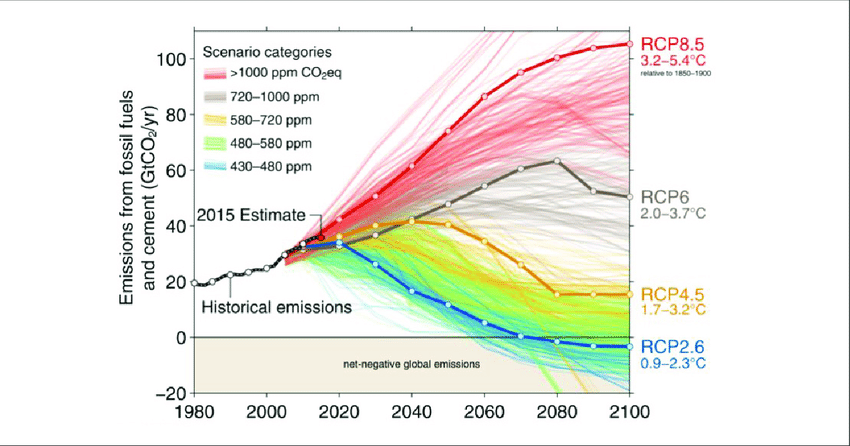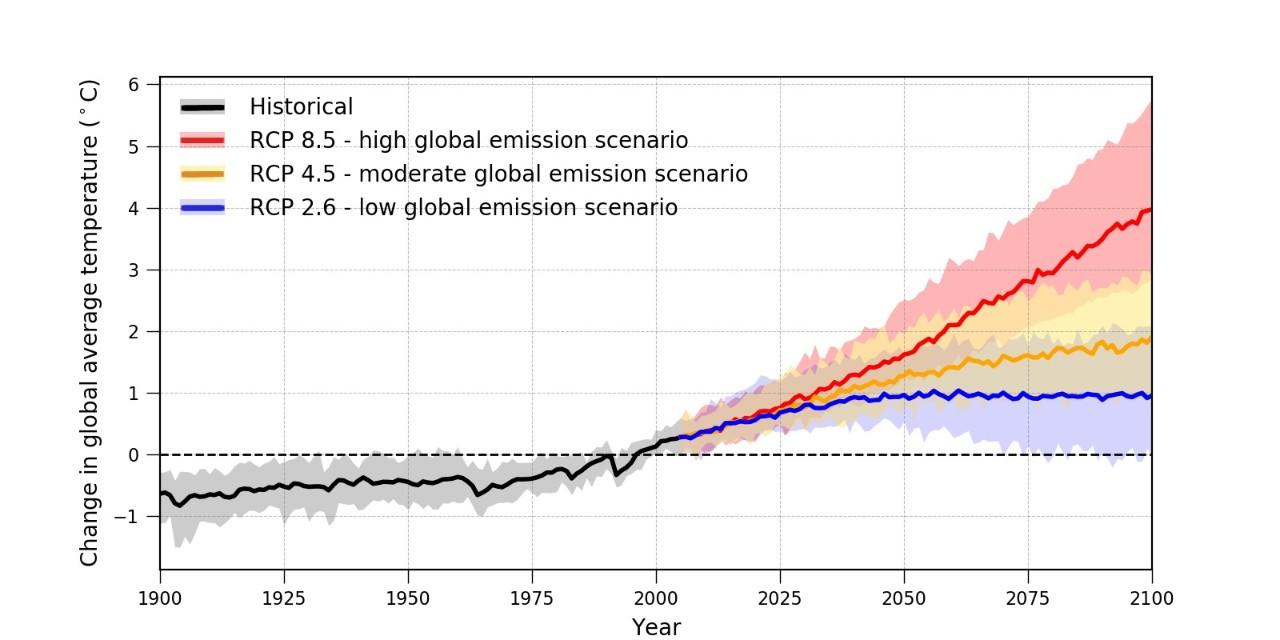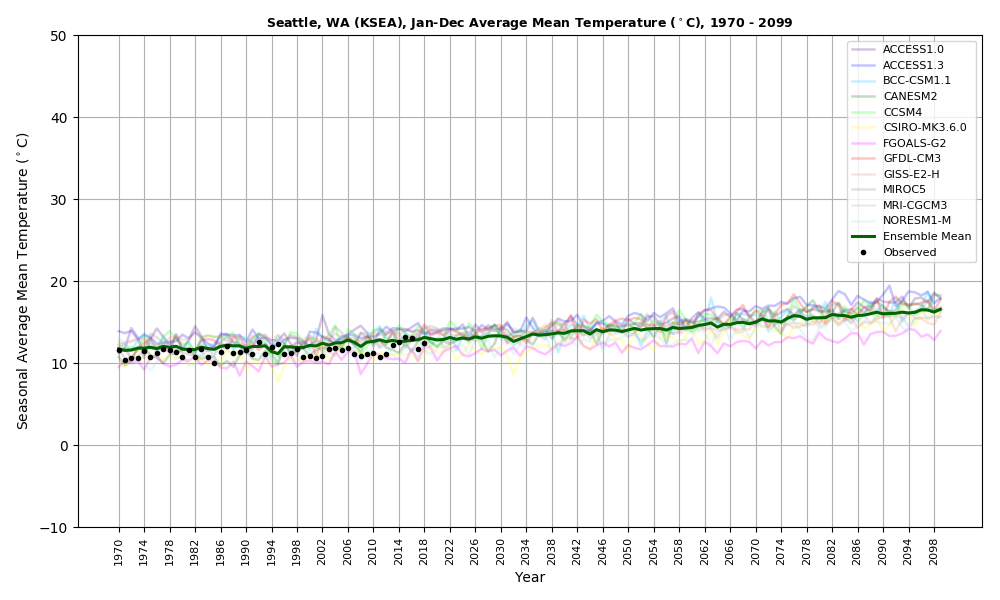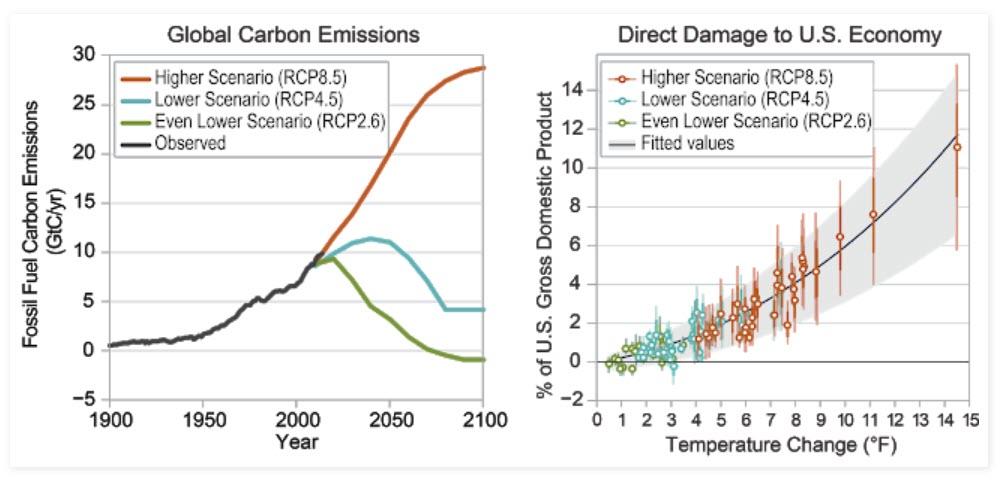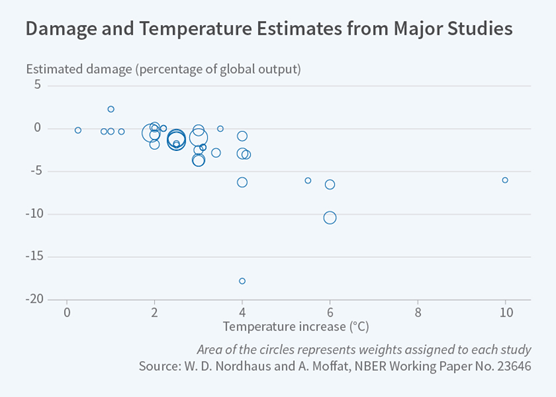Via Cliff Mass Weather and Climate blog,
During the recent presidential debate, a number of candidates suggested that global warming represents an existential threatto mankind, and thus requires dramatic and immediate action.
Governor Jay Inslee has been particularly generous in the use of this term, but he is not alone. Kamala Harris, Cory Booker, Bernie Sanders and Elizabeth Warren have said the same thing, as have several media outlets and environmental interest groups.
Some of these folks also claim that the window for action on climate change is closing–Jay Inslee suggests that the next president will be the last able to take effective steps. Others suggest 10 or 12 years.
But are these existential threat claims true? That is what we will examine in this blog.
An existential threat is one that threatens the very existence of mankind. Something that is a simply a challenge or an inconvenience is not an existential threat. An existential threat must have the potential to undermine the very viability of human civilization.
As described below, global warming is a serious problem and its impacts will be substantial—but in no way does it seriously threaten our species or human civilization. And with reasonable mitigation and adaptation, mankind will continue to move forward—reducing poverty, living healthier lives, and stabilizing our population.
What do current climate models tell us? These models are run under specific scenarios of emission of CO2 and other greenhouse gases (see figure). In one, RCP8.5, we simply continue doing what we are doing, with escalating use of coal and oil. Not much renewable energy. Many believe this scenario is too pessimistic. Much more reasonable is RCP 4.5, which has modestly increased emissions through 2040, declining after 2050. I suspect this one will be closer to reality.
The implication of these emissions on global temperature is shown below based on a collection of climate models (CMIP-5). Under the extreme scenario, the earth warms by about 4C, but for the reasonable one (RCP4.5), global warming is about 2C (3.6F). This warming will not be uniform, being greater in the polar regions, less over the eastern oceans.
You will note the temperature rise in RCP 4.5 is relatively steady through around 2045 and then starts to gradually plateau out. No sharp transitions, no falling off of a cliff, no sudden catastrophes.
I have run a large collection of high resolution climate simulations over the Northwest, driven by the aggressive RCP 8.5 scenario. As shown for Seattle’s mean annual temperature below, there is a steady rise, again with no sudden changes that would be hard to adapt to. Most NW folks will want to purchase an air conditioner for summer, but there is no threat to our existence, and winters will be more pleasant.
But what do official international and national evaluations project for the economic future?
First, let’s check the conclusions of the highly respect Intergovernmental Panel on Climate Change (IPCC), which provides a consensus view of many scientists and nations. Their analysis (SR15, Chapter 3) quoted a paper by Yohe (2017) that found a U.S. GDP loss of 1.2% per degree of warming, So with a 2 C global warming associated with RCP4.5, we are talking about a 2.4% loss of national income in 2100. Not a 2.4% loss from today’s levels, but 2.4% less of the substantially greater income in 2100.
What about the recently released Fourth National Climate Assessment, a document heavily cited by the U.S. environmental community? Their analysis is that the damage to the U.S. economy in 2100 would be about a 1% loss (see below) This is not a 1% loss from the current U.S. gross domestic product (GDP), but a 1% loss of the substantially great GDP in 2100. We will be much richer in 2100, and will lose 1 % of our GDP because of global warming. Doesn’t sound like the end of civilization, does it?
W. D. Nordhaus, who won a Nobel Prize in economics for his study of the economic impacts of climate change, examined a large number of studies regarding the impacts of global warming on the world’s economy (see below). He and his co-author (A Moffat) found that a 2C increase in global temperatures would result in 0-1% damage to the world economy in 2100. Doubling the warming would only increase the damage to around 3%. Again, no existential threat.
Reading these numbers and considering the many reports backing them up, there clearly is no existential threat to either the U.S. or mankind from global warming, leaving one to wonder why are so many politicians, environmental activists, and lots of media are spreading this existential threat line.
And the above studies are not really considering the potential for major technical breakthroughs in energy generation (e.g., fusion), renewables energy sources, or carbon removal form the atmosphere (sequestration). I believe that such advances are inevitable, just as no one in 1950 expected that 2000 would bring personal computers, cell phones, and more.
You also have to wonder whether scientists, politicians, and environmental folks really believe the existential threat warnings they throw around. Many talk the talk, but most don’t walk the walk.
Presidential candidates with little chance of securing the nomination are flying back and forth around the country, resulting in enormous carbon footprints. Climate scientists fly more for work and pleasure than anyone. Many environmentalists oppose nuclear power, one of the technologies that could produce massive carbon-free energy. And several local Washington State environmental groups opposed a revenue-neutral, bipartisan carbon tax initiative (I-732)
Global warming is a real issue and we are going to slowly warm our planet, resulting in substantial impacts (like less snowpack in the Cascades, increased river flooding in November, drier conditions in the subtropics, loss of Arctic sea ice). But the world will be a much richer place in 2100 and mankind will find ways to adapt to many of the changes. And there is a good chance we will develop the technologies to reverse the increasing trend in greenhouse gases and eventually bring CO2 concentrations down to previous levels.
Global warming does not offer an existential threat to mankind, and politicians and decision makers only undermine their credibility and make effective action less likely by their hype and exaggeration. And their unfounded claims of future catastrophe prevents broad national consensus and hurts vulnerable people who are made anxious and fearful.
via ZeroHedge News https://ift.tt/2MWRnGI Tyler Durden

